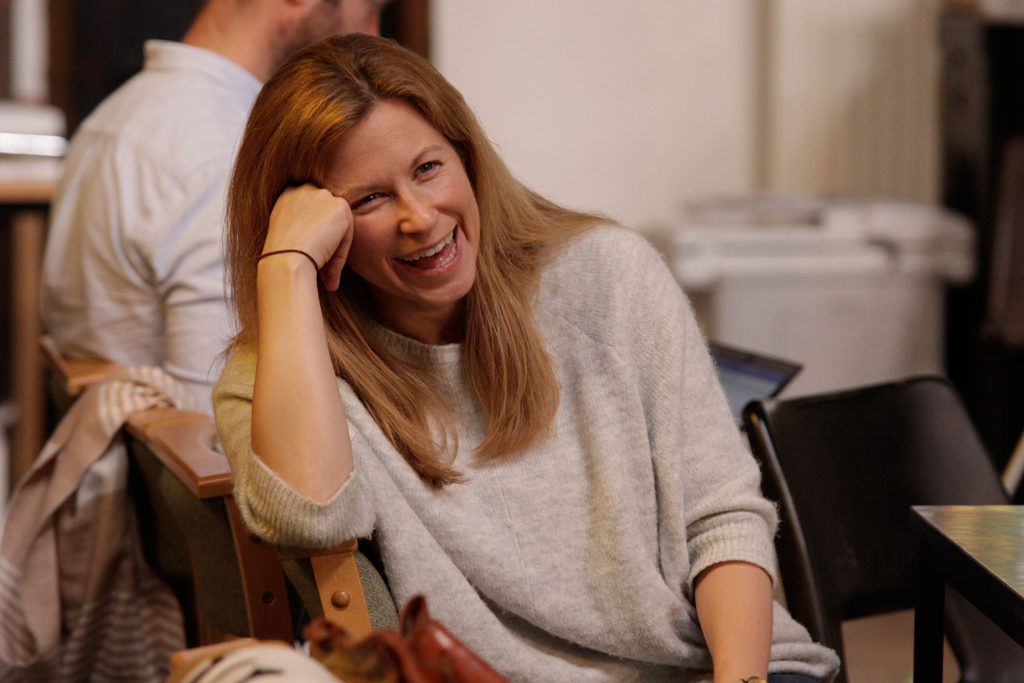
GOODBYE Polstead, say hello to The Ballad Of Maria Marten, the new name for
Beth Flintoff’s captivating drama that first toured in 2018.
Directed by Hal Chambers in tandem with Ivan Cutting, an all-female cast
will embark on a spring tour from Tuesday at Scarborough’s Stephen Joseph
Theatre, led by Elizabeth Crarer, who returns to the title role for Flintoff’s
re-telling of a real-life Suffolk murder mystery in Summer 1827.
In a red barn, Maria Marten awaits her lover. A year later, her body is
found under the floor of the barn in a grain sack, barely identifiable, and the
manhunt begins.
Maria’s story sent shock waves throughout the country. The Red Barn Murder,
as it became known, was national news, inspiring writers and filmmakers down
the ages.
Here was the sort of gruesome tale that had all the hallmarks of a classic
crime drama: a missing body, a country location, a disreputable squire and a
village stuck in its age-old traditions.
However, amid all the hysteria, Maria’s own story has become lost – until this
play. Chambers and Flintoff’s spine-tingling rediscovery of her tale brings it
back to vivid, urgent life.
Flintoff, a freelance playwright and theatre director from Hampshire, was asked
by co-director Cutting to write the play.
She was immediately intrigued, not only because she had never heard of the
murder, but also because she then learnt how the story previously had been
told.
“Ivan approached me after seeing another play that I’d written, which was
set in the early 12th century,” she recalls. “We met in Polstead,
Suffolk, to walk through the village, and I was fascinated. In particular, Ivan
wanted the story to focus on Maria because so many versions of this tale are
centred around William Corder.”
Beth continues: “From the moment of the trial, the focus was on the
murderer, not Maria. No-one seemed to be looking carefully at the intricacies
of her life, beyond the basics. So, I wanted to tell the story entirely from
her point of view.
“We are often presented with stories of women as ‘victims’, rather than as
interesting, complicated people who had hopes and dreams, friends and lives of
their own.”
For her research, Flintoff stayed in Ipswich for a while and walked around Polstead
to gain a sense of how she lived her life. “I visited all the locations of
Maria’s life that I thought would be mentioned in the play: Layham, Sudbury,
Hadleigh. I went to the Moyse’s Hall Museum in Bury St Edmunds, which has
relics relating to the murder, and the Records Office in Ipswich to look at
newspaper reports,” she says.
“I talked to local people to try and understand what everyone thinks now
(the answer: everyone that knows of it has a different version!). Then I spent
a lot of time in libraries: the University of Sussex Library, the British
Library in London and the Bodleian in Oxford.”
Flintoff notes that amid the profusion of accounts of the story, whether from the time of the murder or much more recent, they are all very different. “Some are truly horrible about Maria, others make her out to be an angelic village maiden, and some offer some pretty bizarre theories about Ann,” she says.
“One offered ‘hints to the ladies’ on how to avoid marrying a murderer in
the future. Several anxiously urged women not to be so promiscuous, to avoid
being murdered themselves. None suggested that men stop murdering. Needless to
say, I could not find any contemporary accounts written by a woman.
“Then I put all the research aside and tried to think about Maria as a person.
Who does she love, what do they talk about, what does she do when she’s having
fun? I didn’t want her to be a victim any more. Maria emerged as intelligent,
brave and wryly funny, just like the survivors I had met.”
What does Flintoff anticipate this week’s SJT audience will take away from The Ballad Of Maria Marten? “First of all, I hope they enjoy
themselves! That’s my number one job really. It’s not a laugh-a-minute sort of
play but you can still enjoy a story, even if it’s full of sadness.
“But also I hope they enjoy watching these actresses, as I have, working
together to tell this story about a woman who has somehow got lost in the
retelling of her own murder.”
Secondly, she hopes they feel the story is still relevant. “On average, two
women are killed every week by their partner or ex-partner in this country,”
Beth says. “I feel increasingly that this story is not about the past but the
present: how are we going to let women speak for themselves when there is so
much history of being ignored?
“I feel very optimistic for the future. I think things are going to change,
and it’s wonderful to be living in that change, but it’s going to take work.”
The Ballad Of Maria Marten will run in the Round at the Stephen
Joseph Theatre, Scarborough, from Tuesday,February 11 to 15 at 7.30pm nightly,
plus matinees at 1.30pm on February 13 and 2.30pm on February 15. Tickets,
priced from £10, are on sale on 01723 370541 or at sjt.uk.com.
EDITOR’S NOTE: VERY SORRY THE TEXT IS MISBEHAVING. NO IDEA WHY IT IS, BUT HOPEFULLY THIS DOES NOT SPOIL ANY ENJOYMENT OF READING THE STORY. CH
